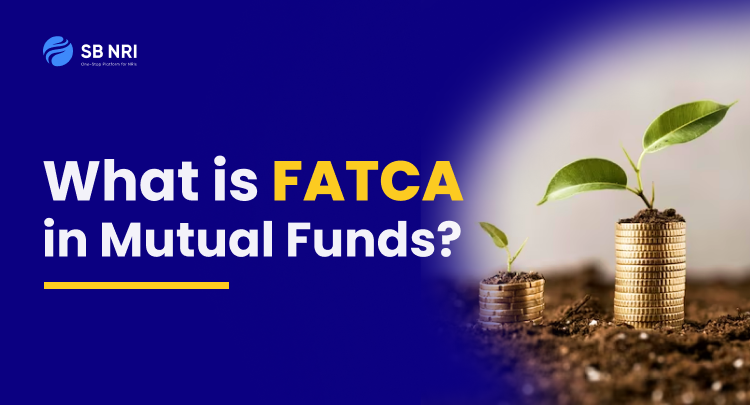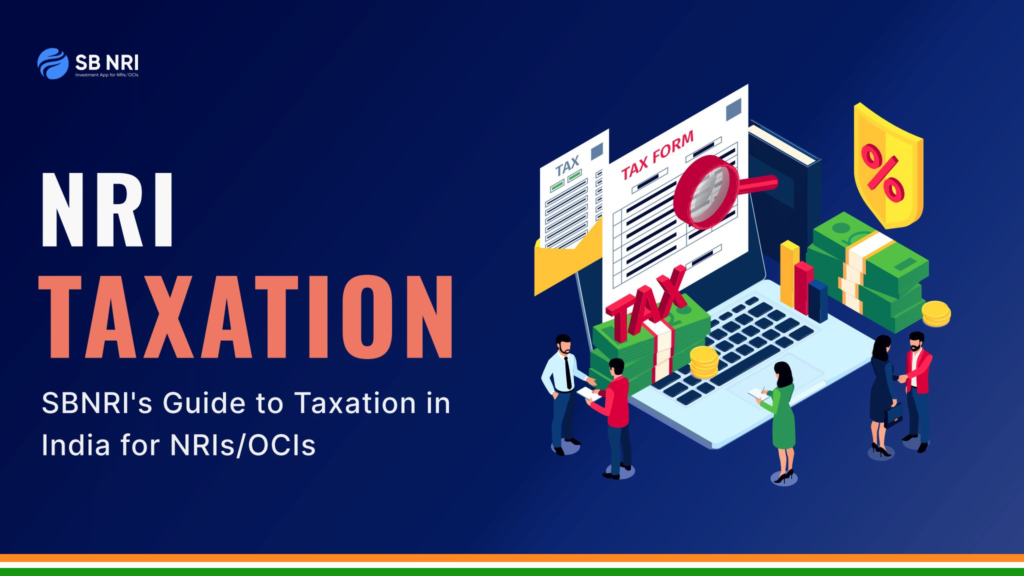
Non-resident Indians (NRIs) are positively looking toward investing in Indian markets to tap into the growth journey and generate returns. However, there are a few rules that they need to be aware of, one of which is the Foreign Account Tax Compliance Act (FATCA). Understanding FATCA is crucial for NRIs from the US to invest in Indian mutual funds. In this article, we look at what FATCA is, its implications, and how FATCA in Mutual Funds makes regulatory compliance to be followed.
Also read: FATCA and CRS Declaration – Meaning, Difference & Regulations
What is FATCA?
The full form of FATCA is Foreign Account Tax Compliance Act which regulates any US citizen living either in the US or abroad to report their annual income on any foreign account that they are holding. It was enacted by the US Government in 2010 to detect and prevent any offshore tax evasion cases by US citizens.
Is FATCA applicable for NRIs and Indian residents?
Effective from January 2016, it was made mandatory for all Indian and NRI investors (both existing and new investors) to file a FATCA self-declaration. FATCA declaration is a specific inclusion that applies to US person for US Tax purposes. This is valid even on grounds when the individual has moved to India and is presently holding an Indian residency status.
Also Read: Mutual Funds for NRIs from USA/Canada to Invest in India
What is the impact of FATCA on investors?
FATCA implies that the law does not only apply at the point of “on-boarding” of the investors but throughout the life cycle of the investor’s account. Any change in the tax status of the investor or key information can trigger the FATCA rules.
Understanding FATCA Compliance: India-US Pact and Why is FATCA for Mutual Funds Mandatory
The government of India agreed to implement the FATCA in 2015 as an inter-government agreement between India and the USA. As per the Inter-government Agreement (IGA), Indian tax officials need to obtain specific information from US investors. To achieve this, the Indian government made it mandatory for all NRI investors from the US to self-declare FATCA compliance through Form 61B, as per Rules 114F and 114H of the Income Tax Rules, 1962. In addition, the government of India also asks for tax residency numbers and Indian passports.
You need to submit the following details as part of the FATCA self-declaration:
- Name
- Permanent Account Number (PAN)
- Address
- Place (city/state) of birth
- Country of birth
- Nationality
- Gross Annual Income
- Occupation
- Whether one is a resident of another country? If yes, the details of the country of residence, Tax ID number, and type
In case of any change in the above information, it is mandatory to inform the concerned financial institution within 30 days of the change. You can download the FATCA self-declaration form online. Alternatively, you can also visit an Asset Management Company (AMC) office to procure the form.
What are the Investments in India that require FATCA Application?
Here are the investments made in India that are subject to the regulation of the FATCA taxation:
- Fixed deposits
- PPF
- Stocks
- Mutual Funds,
- Bank Interest
- Other capital gains and retirement contributions.
Note: Failure to comply with the Foreign Account Tax Compliance Act can result in severe repercussions like freezing of bank accounts, suspension of mutual fund investments, and blocking of NPS accounts.
What is the purview of FATCA for NRIs?
- House properties owned by NRIs in India do not fall under specified assets of FATCA. This means income earned from them is not subject to the act. However, this income is subject to taxation in India.
- NRE, NRO, and FCNR accounts held by NRIs come under the purview of FATCA.
- Assets that do not come under the act include antiques, jewelry, cars, art pieces, and other collectibles. Safety deposit boxes do not require to be reported. Foreign currency held by you but not in any financial institution also does not need to be reported under FATCA.
What is the impact of FATCA on NRI mutual funds?
Financial institutions are required to share the investment details of US citizens, including NRIs based in the US. Thus the Asset Management Company (AMC) or the mutual fund company where US NRIs are investing must comply with FATCA regulations and report about their investments as per the process mentioned.
NRIs from US investing in mutual funds in India are expected to share details such as their country of residence, country of birth and citizenship, and tax identification number while applying for mutual funds.
Calculate your TDS Refund with SBNRI’s TDS Refund Calculator
A TDS refund is the process of reclaiming the excess tax deducted at source by the payer if the actual tax liability of the taxpayer is lower than the TDS deducted. This situation typically arises when the income tax calculated on the total income is less than the TDS already deducted. To claim a TDS refund, taxpayers need to file an income tax return (ITR). The Income Tax Department processes the ITR and verifies the details. If the tax department finds that the TDS paid is more than the actual tax liability, the excess amount is refunded to the taxpayer.
You can easily find out how much tax refund you can get by calculating your TDS Refund from this TDS Refund Calculator.
Access SBNRI’s Exclusive NRI Taxation Guide

NRIs and OCIs can now access SBNRI’s exclusive NRI Taxation Guide covering in-depth information about DTAA, Gift Tax, Rental Income Tax, ITR Filing, Types of ITR Forms for NRIs, Capital Gain Tax, Income Tax, and more. The report will help you understand India taxation on mutual funds, other asset classes and how you can comply with the regulations.
Access NRI Taxation report here
Wrapping Up
FATCA has far-reaching implications for NRIs investing in mutual funds. NRI investors should be aware of FATCA’s impact and comply with the regulations to continue their investing without any repercussions.
At SBNRI, we understand the importance of correct guidance for NRI investors in FATCA compliance. You can download the SBNRI App to connect with our NRI Tax Experts to know more about FATCA rules for NRIs. You can also click on the button below to schedule a call with our NRI tax expert directly. Also, visit our blog and YouTube channel for more details.
FAQs
What is the information that the investor is required to provide in FATCA?
Investors are expected to provide details such as Country of Tax residence, Tax Identification Number (TIN) from such country, Country of Birth, Country of Citizenship, etc. at the time of onboarding of investment. As for existing investors, they will have to provide the information in the stand-alone FATCA declaration form.
Do all investors have to do FATCA?
All investors, including NRI investors and residents alike, have to provide information for FATCA regulation.
What is an Intergovernmental Agreement?
Inter-government Agreement (IGA) is a bilateral agreement between the US Government and the government of the country that facilitates compliance with FATCA. This pact mandates financial institutions in the designated jurisdiction to comply with FATCA.
What is the guideline of SEBI for FATCA?
SEBI has issued a circular CIR/MIRSD/2/2015 dated 26 August 2015 instructing all Mutual Funds to implement FATCA.
Who is required to fill FATCA form?
All investors including residents and NRIs looking to invest in Indian markets have to provide self-declaration as compliance with FATCA guidelines regardless of whether they are a US person or not.
Is FATCA mandatory for mutual funds?
Yes FATCA is mandatory for all mutual fund investments since January 2016 when it was made mandatory for all Indian and NRI investors (both existing and new investors) to file a FATCA self-declaration.



